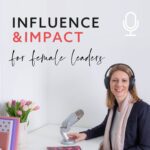In this episode of the Influence and Impact for Female Leaders podcast, I speak to Haseena Farid, co-founder of The Women of Colour Global Network – a membership network connecting professional women of colour, supporting them with career progression and advancement.
We discuss:
- How The Women of Colour Global Network was started, what they do and how you can be part of it.
- The double disadvantage for women of colour and the impact of that
- How leaders can create a safe space and open dialogue around diversity and inclusion
- Ways we can educate ourselves on inclusion and become change-makers in our organisations.
I hope this week’s podcast provides you some more insight on inclusion in the workplace and practical ways you can be a more inclusive leader.
I’m grateful to Haseena for being so open with her experiences and advice. The Network is a supportive and inclusive space for all women and their future vision is to provide mentoring, run events, and work with organisations to improve their culture, policies and practices.
THE WOMEN OF COLOUR GLOBAL NETWORK
Join the network: https://www.wocgn.com/
LinkedIn: https://www.linkedin.com/company/women-of-colour-global-network-ltd/
Instagram: https://www.instagram.com/wocgn/?hl=en
MORE ABOUT HASEENA
As well as co-founding The Women of Colour Global Network, Haseena is an executive coach and the founder of Meshwork – a consultancy providing organisational development, training, facilitation, fundraising, coaching and management expertise for charities, nonprofits and creative sectors.
She is a second generation British-Bangladeshi woman of colour and is passionate about inclusive leadership, building purposeful and impact-driven organisations and the promotion of equality and equity of women of colour in the workplace and in wider society.
Connect with Haseena: https://www.linkedin.com/in/haseenafarid/
Meshwork: https://www.meshwork.uk/
HASEENA’S BOOK RECOMMENDATIONS
Brit (ish): On Race, Identity and Belonging – Afua Hirsch
https://www.afuahirsch.com/product/british-on-race-identity-and-belonging/
Why I’m No Longer Talking to White People About Race – Reni Eddo-Lodge
https://renieddolodge.co.uk/books/
Queenie – Candice Carty-Williams
http://www.candicecartywilliams.com/
Follow me on:
LinkedIn: https://www.linkedin.com/in/carlamiller1/
Instagram: https://www.instagram.com/thisiscarlamiller//
HOW CAN I SUPPORT THE PODCAST?
Subscribe
Share this episode with a friend
Leave a review
I would love to hear you feedback on this week’s podcast. Please leave a review or come say hello on social!
Thank you for listening, see you next week!
WORK WITH ME:
If you’d like to talk to me about working together do book a call.
How I work with individuals:
- 1:1 executive coaching
- Be Bolder confidence and assertiveness course
- Influence & Impact women’s leadership programme
How I work with organisations:
